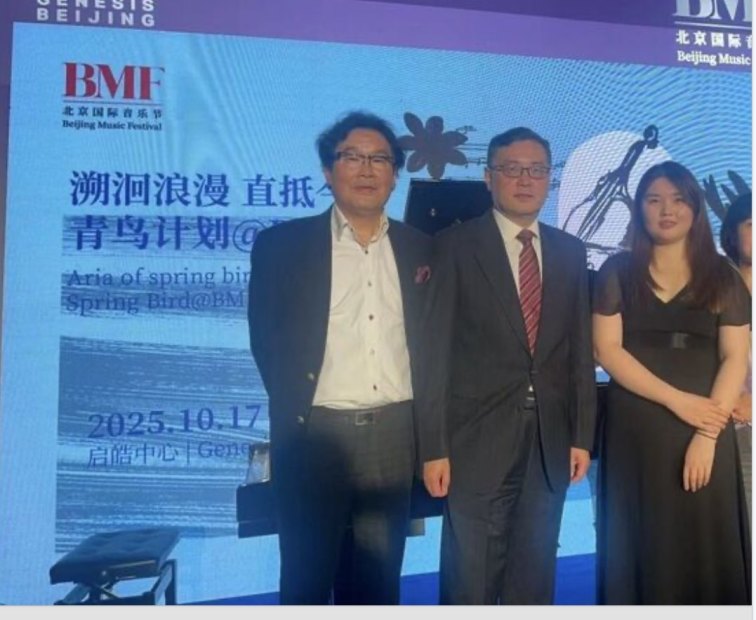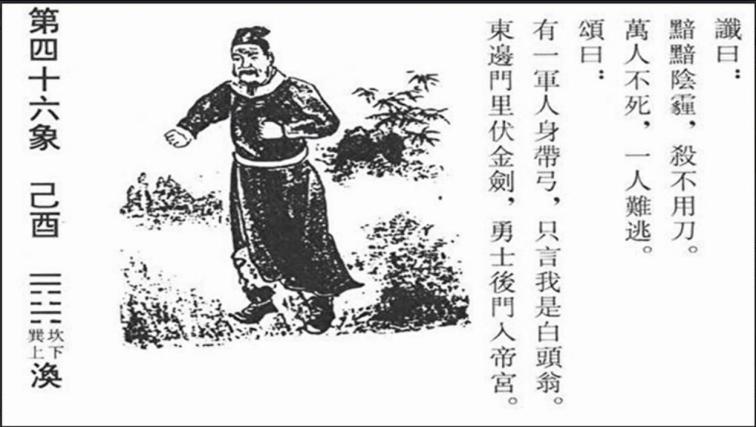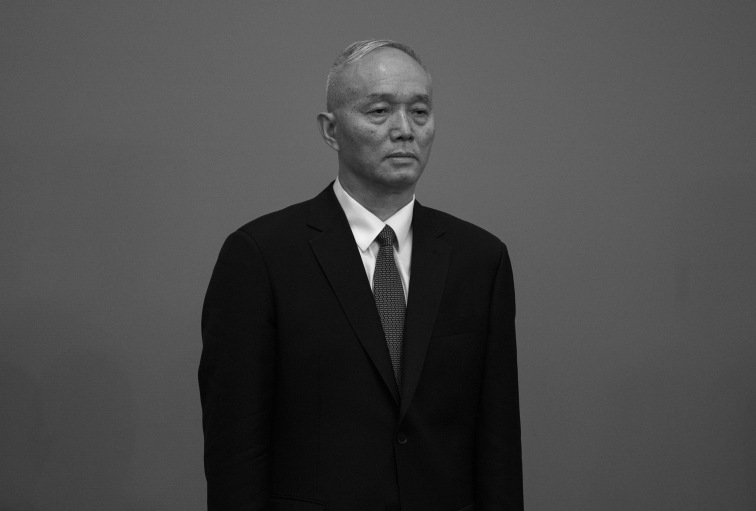On the eve of the CCP’s 20th Central Committee Fourth Plenary Session, a large convoy of various military vehicles was spotted on highways near Baoding, Hebei Province. (Video screenshot)
[People News] As the countdown to the CCP’s Fourth Plenary Session begins, on October 17 the Chinese military abruptly announced disciplinary actions against nine generals, including Vice Chairman of the Central Military Commission (CMC) He Weidong and former Director of the CMC Political Department Miao Hua. They were not only expelled from the military and the Party, but their “suspected criminal offenses were transferred to military prosecutors for review and prosecution according to law.”
The announcement immediately triggered widespread speculation. Since both He Weidong and Miao Hua were Xi Jinping’s key allies in the military, and the other seven were also regarded as Xi’s confidants, their downfall strongly suggested that Xi’s rumored “voluntary” resignation from his posts as CMC Chairman and General Secretary at the upcoming plenary session is highly likely — and that this scenario would require Xi’s cooperation.
Just days earlier, overseas sources claimed that Zhang Youxia, the CMC’s First Vice Chairman and the man currently in control of military power, had secretly met with Hu Jintao, Wen Jiabao, Wang Yang, and Hu Chunhua. He reportedly briefed them on unusual developments, such as abnormal guard rotations in the Central Security Bureau, the frequent presence of Cai Qi and Wang Xiaohong at the plenary session venue, and constant changes in security arrangements. Zhang was said to be concerned that Xi’s faction might attempt something dangerous during the meeting, forcing the military to intervene publicly. Zhang thus sought the elders’ advice.
The implication of this leak was that Xi did not intend to stay quiet during the plenary session but was planning some maneuver to turn the tables — suggesting he might not truly cooperate. Since the information came from a single source, it cannot be verified, but without the military’s support, could Xi really rely on civilian allies like Cai and Wang to pull off such a move?
In my view, Xi is unlikely to get his way. After all, the Party elders and Zhang Youxia have also spent decades steeped in the CCP’s dark political culture — they surely know every trick and scheme, and would have taken precautions long ago.
On October 18, the day after the announcement about He and Miao, the military’s official newspaper published an editorial titled “Unswervingly Carry the Anti-Corruption Fight in the Military to the End.” It sent an unusual signal — one clearly intended to distance Xi from He, Miao, and the others.
The editorial opened by noting the expulsion and judicial transfer of the nine generals, emphasizing again the Party Center and the CMC’s “firm resolve to carry the anti-corruption campaign through to the end.” It hailed the decision as a “major achievement in the Party and the military’s anti-corruption struggle,” stressing that “there are no ironclad pardons or untouchable princes.” Their “corruption issues are the mutated legacy of Guo Boxiong and Xu Caihou’s poisonous influence.” In other words, their downfall and future sentencing are framed purely as corruption cases, not political ones.
The true purpose of this framing is to sever any association between Xi and their problems. Their corruption, the editorial implies, was purely personal — although most were promoted or endorsed by Xi, this merely shows his poor judgment, not culpability. Hence the editorial’s phrasing that they “seriously betrayed the trust of the Party Central Committee and the CMC, and gravely undermined the Party’s principle of controlling the gun and the CMC chairman responsibility system.” This language places all blame on the generals for “betraying Xi’s trust.” If their downfall were treated as a political issue, it would require identifying the mastermind or faction behind them — something that would inevitably implicate Xi.
The editorial further reinforced the separation by repeatedly pledging loyalty to Xi in familiar slogans, calling on all military and armed police personnel to “consciously maintain a high degree of unity with the Party Central Committee with Comrade Xi Jinping at its core in ideology, politics, and action, resolutely obey the commands of the Party Central Committee, the CMC, and Chairman Xi,” and to “unswervingly uphold the Party’s absolute leadership over the military, remain loyal to, support, safeguard, and defend the core.” It urged the military to “unify thought and action with the Party Central Committee and CMC’s major decisions,” emphasizing adherence to the “Chairman Responsibility System.”
These statements again conveyed to the public that Xi has made no mistakes — the wrongdoers were He, Miao, and others for their disloyalty. The military’s continued flattery does not indicate that Xi has regained real power, but rather that the Party is setting the stage for him to step down gracefully at the plenary session. It also serves as a warning to remaining Party, government, and military officials still aligned with Xi — to reflect on what their own futures might hold.
In my analysis, the editorial can be interpreted in two ways. First, that Xi has agreed to cooperate, and so the CCP’s power brokers are helping him distance himself from the disgraced generals, signaling that even after stepping down, he will remain safe. Second, that Xi’s attitude is still ambiguous, but the controllers are making the separation anyway to send him a message: as long as he cooperates with the power transition at the session, he will not be implicated. I believe the latter reflects the CCP elders and Zhang Youxia’s current strategy — to protect the Party by minimizing internal and social upheaval, assuming Xi willingly steps down.
Furthermore, the military newspaper’s editorial also confirms that major personnel changes are imminent at the Fourth Plenary Session — most likely Xi will voluntarily relinquish his posts as Chairman of the CMC and General Secretary, while retaining the state presidency until next year’s Two Sessions.
On October 17 (U.S. time), U.S. President Donald Trump confirmed that he will meet privately with Chinese President Xi Jinping in South Korea in several weeks. Normally, when a CCP leader visits a non-communist country, he uses the title of “President of China,” not “General Secretary.” This indirectly confirms that Xi will likely retain the presidency at least through the plenary session.
Is the state media already “spoiling” the script before the Fourth Plenary Session begins? △











News magazine bootstrap themes!
I like this themes, fast loading and look profesional
Thank you Carlos!
You're welcome!
Please support me with give positive rating!
Yes Sure!